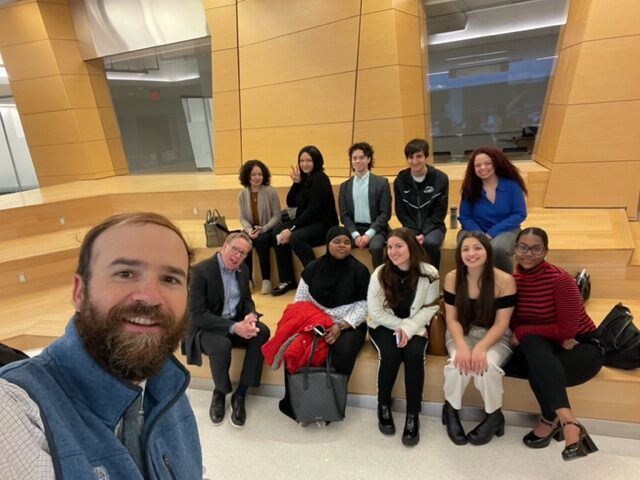What comes to mind when you hear the term “networking”? For many, I imagine, this is a concept totally associated with the business of advancing one’s career. In this sense, networking is a necessary but not always enjoyable part of rising in the professional ranks. Students are often encouraged to grow their “network” by attending professional events and initiating contacts with experts in their industries. For many, there is an inherent discomfort in networking because it means taking risks to meet new people and build new relationships that are advantageous to one’s career. Many students come to a university like Georgetown because they believe that Georgetown’s global network of alumni will ultimately be helpful in realizing their professional ambitions. I would like to affirm these aspects of networking but also offer some values-based considerations about this practice.

The Jesuits have spoken in recent years about the importance of networking. For a global religious community operating in countries across the world, it is critically important that the Jesuit organization be comprised of local and regional networks that relate to one another through shared projects. Clearly defined networks help ensure that “mission can be carried out,” according to the Jesuits’ General Congregation 34. Realizing universal values like a commitment to justice and the common good requires collaboration and coordination among partners in a defined network. Cooperation is key to realizing the global mission of the Jesuits. Georgetown and the other universities in the Association of Jesuit Colleges and Universities contribute to that mission through the work of higher education.
This week, SCS engaged in a mission-committed form of Jesuit higher education networking by welcoming to campus a group of undergraduates from our peer Jesuit school, Le Moyne College in New York. The students from Le Moyne, accompanied by staff guides, came to Washington, D.C. for a week of visits during their spring break in order to explore post-graduation opportunities. Through the Manresa Program, a comprehensive, multi-year career preparation and personal development program at Le Moyne, these students are on track to discover how to apply their greatest gifts in life after college. In addition to meeting with Le Moyne alumni in Washington, D.C., the students wanted a more in-depth understanding of graduate and professional education so they reached out to SCS to learn more.
Chief Marketing Officer Stacey Corcoran and I welcomed Le Moyne to campus for a short tour and an open discussion about how to approach the post-graduation journey. The students were especially interested in learning more about what graduate programs look for in applicants. They also desired more information about how students typically arrive at SCS. It became clear in the interactive conversation that students understood there is no “one-sized-fits-all” model for how one decides to apply to a professional graduate program. Given some baseline familiarity with Ignatian discernment frameworks, I was able to offer some suggestions about how to structure the individual decision-making process after graduation.
It was reassuring to be with the Le Moyne group because of the kinship due to our shared values as peer Jesuit institutions. While the expression of mission and values might look differently in different contexts, there is a reassuring commonality among Jesuit schools across the world. This one small effort at networking is a reminder of the potential strength of working together as aligned partners with a unified commitment to the principles of Jesuit education. SCS, through its innovative and flexible approach to values-based, mission-committed graduate professional and continuing education, is contributing to this global effort.
